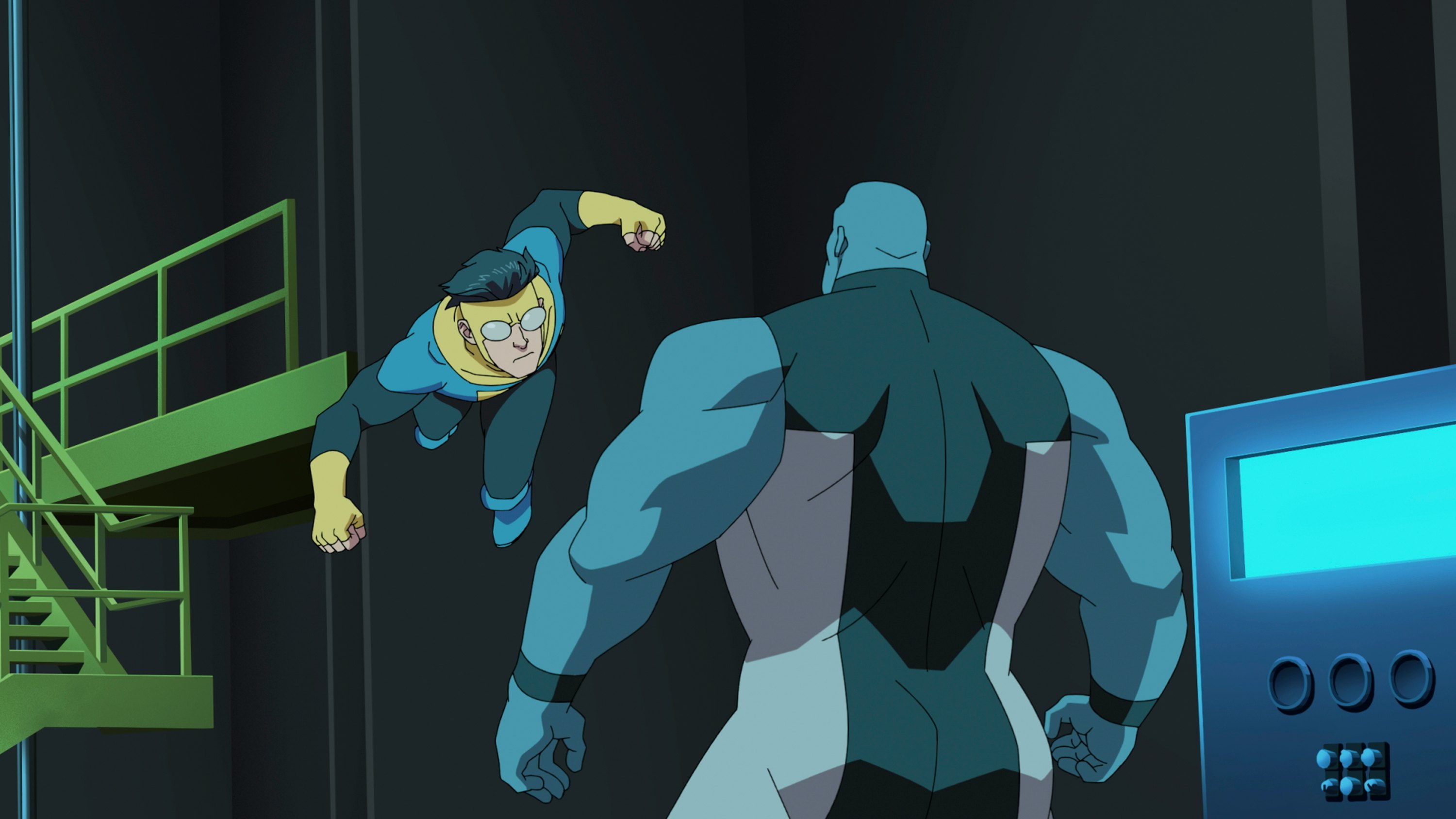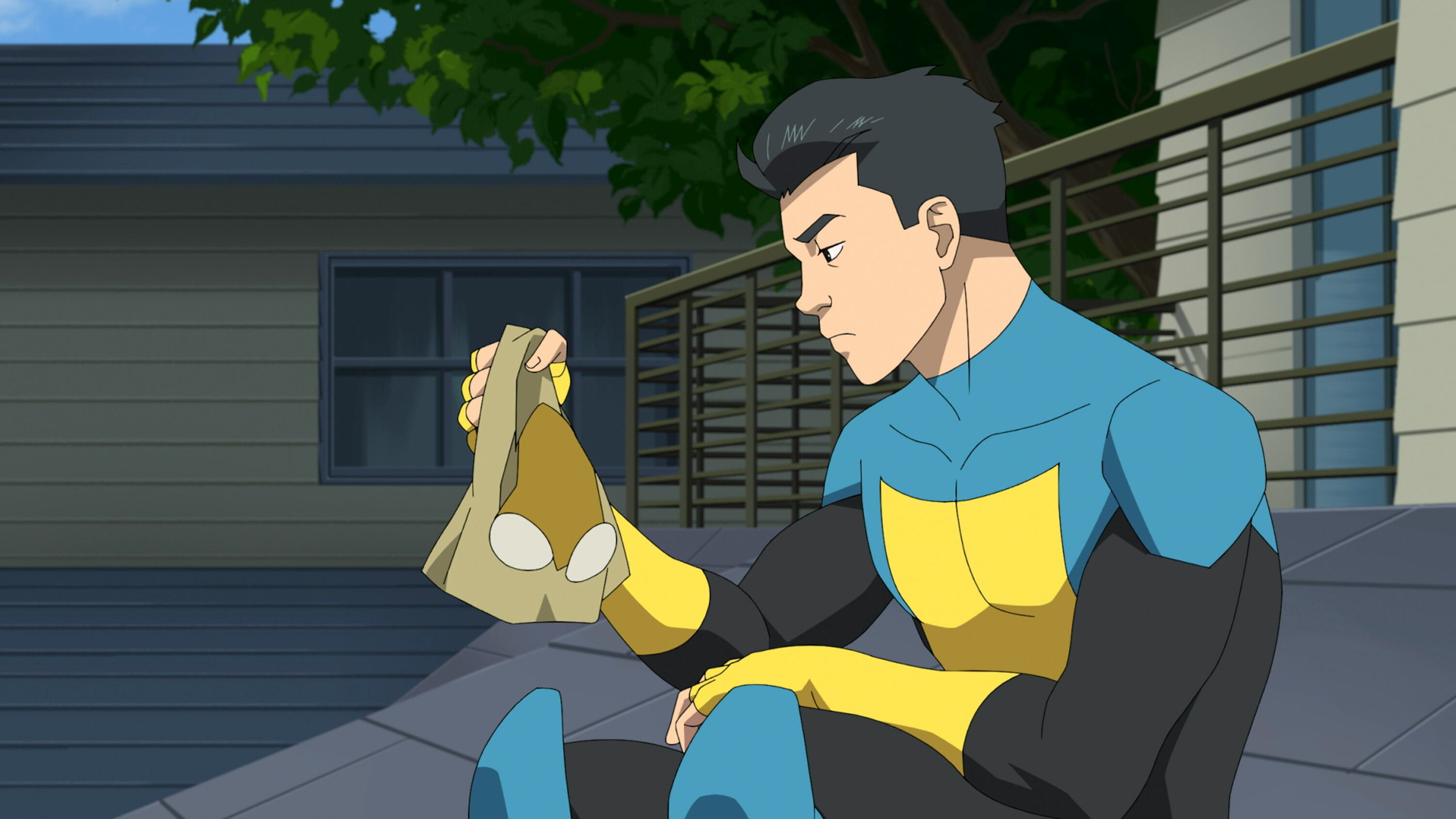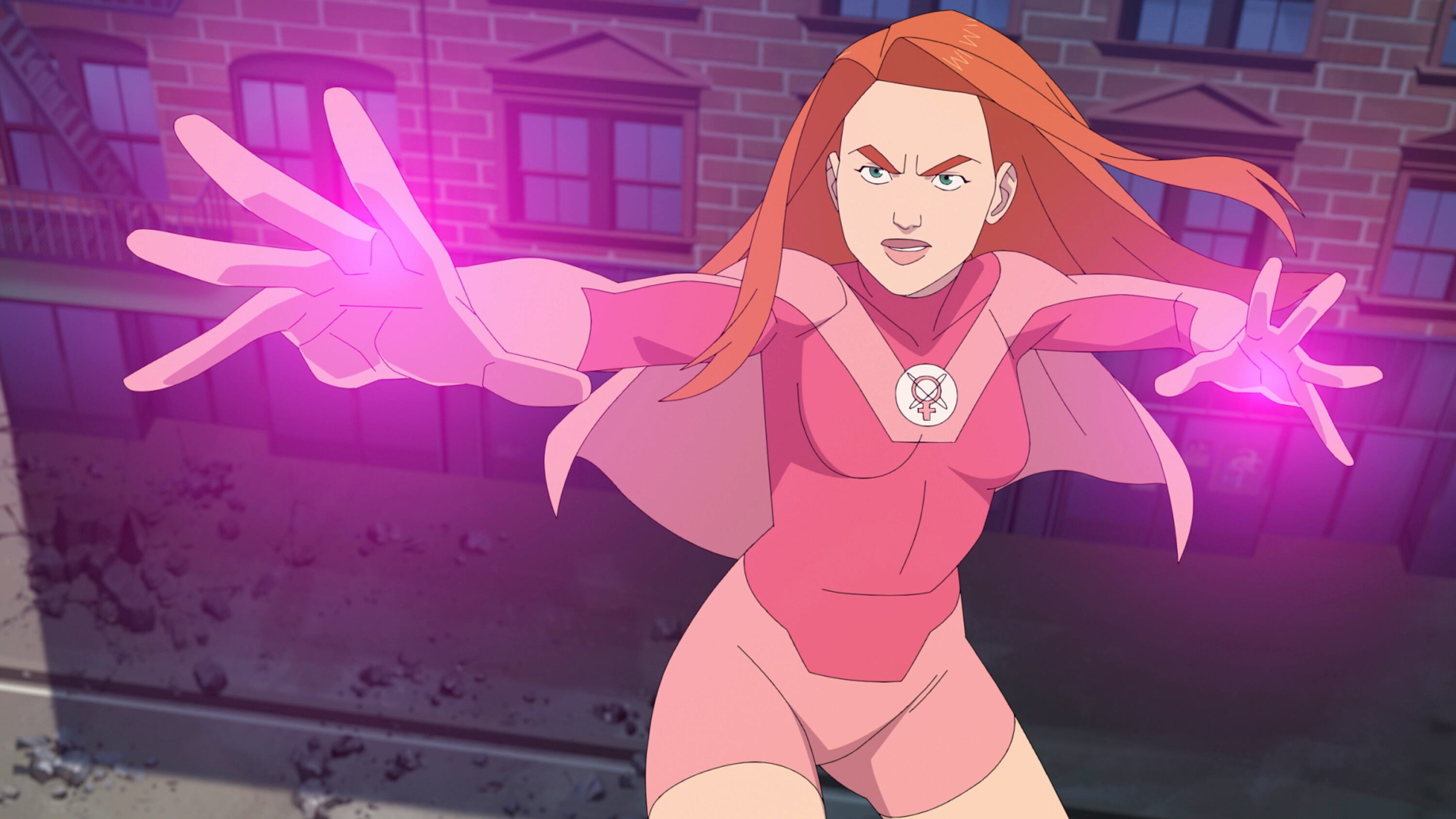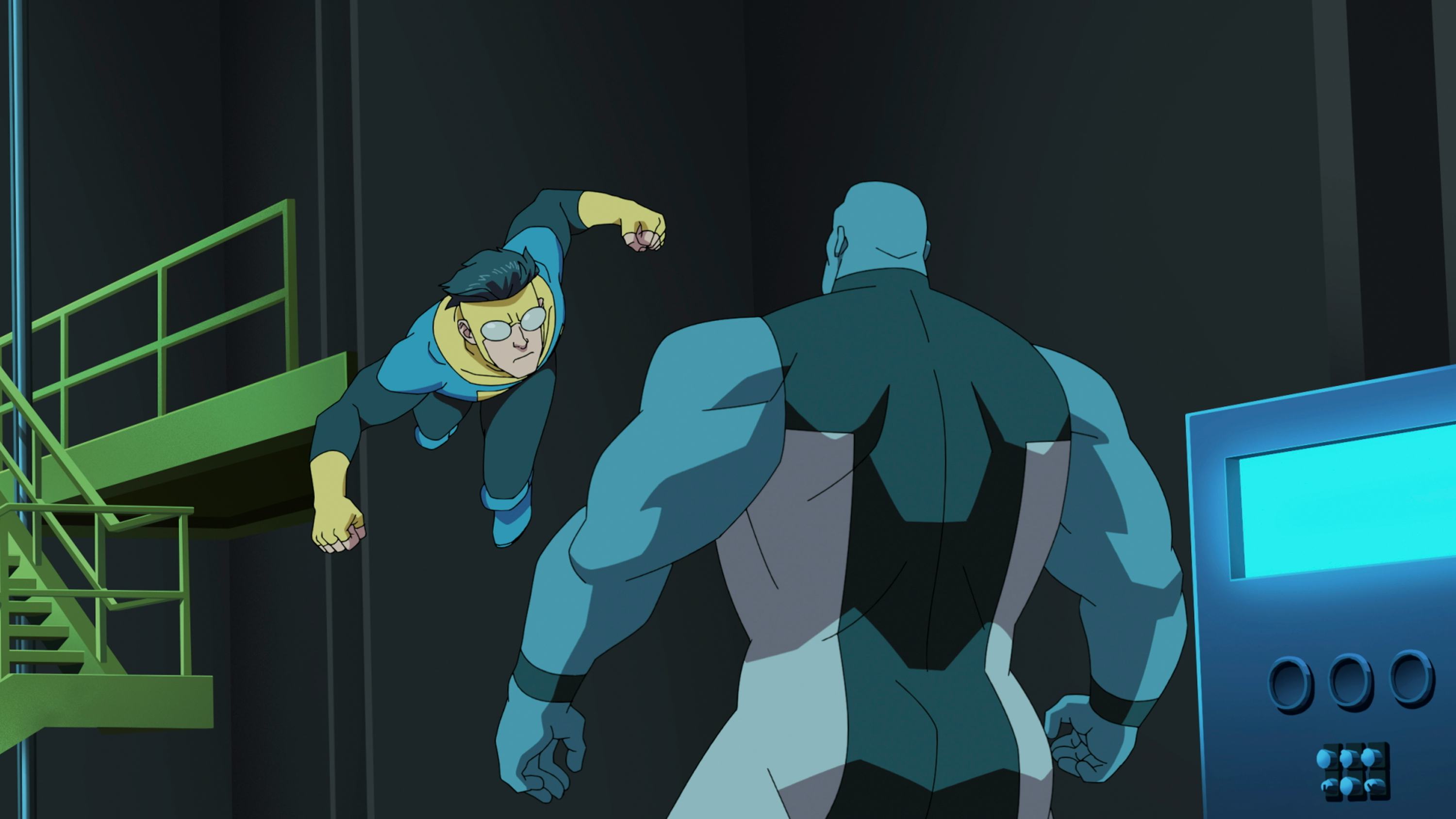
Invincible swooped in like a revelation. In its blistering and blood-soaked first season, the Amazon series (an adaptation of comics by The Walking Dead creator Robert Kirkman) turned superhero conventions upside down with its harrowing tale of fathers, sons, and the secrets that tear them apart. While, on the surface, Invincible presented itself as a colorful, grown-up homage to Saturday morning cartoons, in its heart, it was an Aeschylus tragedy dressed in spandex.
Now, as superhero fatigue becomes more pervasive, Invincible returns, and it’s as thoughtful, gory, and hilarious as ever. Invincible again centers on teen superhero Invincible/Mark Grayson (an engaging Steven Yeun in voice-over). Set only months after the Season 1 finale where the powerful Omni-Man (J.K. Simmons) revealed his true nature as the harbinger of a superior alien race — and beat his own son to an inch of his life — Mark and his mother, Debbie (Sandra Oh), are left picking up the pieces.

In the first four episodes of Invincible Season 2 (Episodes 5-8 won’t arrive until early 2024), Mark heads off to college with his girlfriend and best friend, all the while interrogating himself over the possibility that he could be like his father. This anxiety underpins all his most consequential actions, from routine morning vigilantism to rescuing aquatic fish queens. For Mark, saving even hostile civilizations may help wash the blood on his hands. (And rest assured, there is a lot of blood here.) Meanwhile, Debbie processes what it means to have been loved by a total monster. In the Season 1 finale, Omni-Man said he loved her like a “pet.” Now in Season 2, that word hangs over Debbie like a curse, triggering shoulder shudders and ice-cold tears to fall down her cheeks. It’s a very natural, human reaction to a very unnatural situation.
Broadly speaking, Season 2 of Invincible is about the fallout of families torn apart by criminal elements. The show isn’t wholly original in that regard; Marvel’s own movies tread similar waters quite often. But there’s a profound level of intelligence and even grace with which Invincible handles them all, in concert with sardonic wit that ensures not every minute is such a drag. Take its immense bloodletting, for instance. While entertaining on the surface (especially to those whose media diet consists of Dragon Ball Z and Mortal Kombat), it still feels like a deliberate artistic choice. Watching Mark’s face swell yet again with purple bruises and eyeballs dangle from skulls, you get the feeling that showrunner Simon Racioppa and the show’s executive producing team (including Seth Rogen, Evan Goldberg, and original comics creator Robert Kirkman) use Goyaesque gruesomeness to serve a larger, salient point: ruthless self-examination can feel like torture. But no matter how painful the penance, there is still no absolution.

Change is in the air for Mark Grayson, and indeed for Invincible. Through Mark’s transition to adulthood, Season 2 covers those precious months when young people learn real responsibilities, real survival skills, and how to foster real relationships for the first time. In a superhero universe, it’s all ripe for easy drama. Invincible doesn’t stray far from the established tracks of other YA superheroes as seen on The CW; you can bet your student loans Mark will inevitably skip classes and leave his girlfriend behind to solve a crisis on an alien planet. (And it’s never not surprising the mileage Invincible still gets out of treading worn genre conventions.) But while Mark matures, so too does Invincible, proving itself to be a show that doesn’t rely solely on shock value or twists to entertain. There are surprises in Season 2, sure, but they are fundamentally rooted in a story that seems to know exactly where it intends to go next.

Not all is pristine. It’s a very specific problem for Invincible Season 2 that it takes on many different narrative threads at once, each story with its own tone that doesn't feel totally cohesive in the collective mosaic. It’s admirable how big Invincible thinks. Episodes geographically stretch across millions of lightyears, but its roster of multidimensional characters and legible plotting means nothing about the show ever feels unwieldy. It’s just also jarring how the stories contrast one another. Put another way: Invincible is a show where a woman coping with the fallout of her serial killer husband and a supervillain cloning himself are told side-by-side. Superhero tales have always been this vivid — how often in the comics have the Fantastic Four spent time traveling to outer space while bickering about petty drama? — but the show could possibly benefit from controlling just how vast the spectrum of tones these stories run.
While Invincible has its roots in comics, it earns high marks wholly due to its own merits. Its purposeful illustration of nauseating violence, irony-free deadpan humor, and authentically engaging storytelling makes Invincible as refreshing as it is transgressive. However familiar it is as a superhero product, it’s still bold and daring, and comfortably leagues above the Content Era fast food slop put out by rivals in the same space. Invincible isn’t impervious, but there is density in its bones. It might feel as if superheroes still have a place in the sky.







